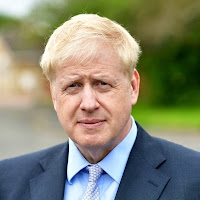 |
| Designed by Will Staehle, the cover of Magic For Liars is memorably great. (Image via Amazon) |
At its core, Sarah Gailey’s debut novel is about how the powerful impose their will without consent, and without a second thought. These power dynamics might be portrayed within Magic For Liars as the relationship between the magical and non-magical, but they are grounded in well-observed real-world dynamics between those who have privilege and those who don’t.
Setting the story at the Osthorne Academy for Young Mages, Gailey uses the standard tropes of the magical academy to explore notions of privilege by telling the story from the perspective of someone who lacks magical ability. The protagonist, private investigator Ivy Gamble, is the non-magical twin sister of a teacher at the school. Ivy is lead by circumstance to investigate a murder within the magical community.
Through this set-up, Gailey interrogates themes of power, consent, toxic relationships, sibling resentment, and identity. Memorable scenes, such as when a magical healer subjects Ivy to an invasive procedure without asking, or a flashback to a practical joke her sister played on her, effectively reinforce these themes. This is a lot of heavy subtext for a novel with a sprightly cadence and breezy prose, but for the most part it works.
Some of the things we enjoyed the most about Magic For Liars were what Gailey chose to omit. Rather than deluging the reader with endless explanations of magic or magical society, Gailey focuses on characters and motivations. Rather than treating the sexuality of characters as big revelations, the inclusion of LGBTQ characters is refreshingly natural and casual.
 |
| The magic of privilege enables many people to become their worst selves. (Image via Twitter.) |
Because of the massive cultural hegemony of Harry Potter, it’s difficult not to compare any novel about a school for magicians to the one in J.K. Rowling’s best-sellers. But we’d argue that the school in Magic For Liars might more aptly be compared to Eton College, the famous privilege factory that has churned out generations of upper class twits such as David Cameron and Boris Johnson.
Some have suggested that the book is more comparable to Lev Grossman’s The Magicians than to the Harry Potter series. This is in part due to the age of the students and the mature tone of the books. Most notably, the ability — the privilege —of doing magic enables characters to be their own worst possible selves. Interestingly, Ivy Gamble is a far more likeable protagonist than Quentin Coldwater.
When dealing with characters and their relationships, when dealing with magic as a metaphor for social stratification and when dealing with implied politics, Magic For Liars succeeds, but as a mystery novel, it is somewhat unsatisfying. The investigative threads are occasionally obvious, and the lack of observational acuity among the school faculty beggars belief. Most troubling is the convenient trail of notes left for the protagonist — most of our book club found it too simple to be considered a puzzle.
Gailey’s prose oscillated at times between light and engaging fantasy and noir detective pastiche. Some readers found this tone switching distracting, especially in early chapters where the overuse of similes was especially annoying. One reader almost didn’t finish the book because of lines like “The drought-impossible velvety green lawn that surrounded the school looked like frosting that was waiting to have a finger through it.” It was suggested that this tone might have been intentionally over-the-top to evoke hard-boiled detective prose.
But despite these quibbles and qualms, it is a book that we recommend. We suspect that it will appeal to many Hugo voters, especially given how the protagonist reminded at least a few of us of Elma York, the hero of Mary Robinette Kowal’s Hugo-winning The Calculating Stars. Much like York, Ivy Gamble is a flawed narrator who deals with anxiety and impostor syndrome, and much like York, she challenges systems of privilege and power.
We look forward to reading Gailey’s subsequent works.
We look forward to reading Gailey’s subsequent works.

The age is closer to (the latter books of) Harry Potter not the Magicians. Mostly its neither since its not a high-stakes epic fantasy, but the distinct lack of portals makes it more Harry Potter in setting.
ReplyDeleteLike Ivy, I live in Oakland and the location of the school in the hills supports your thesis of it being a metaphor about class ("the flats" vs "the hills" being laden with race & class meaning here) though specifically putting it in Sunol doesn't, which is mostly just a rural area. Overall it does have a lot to say about abuse of power I dunno about calling it an Eton.